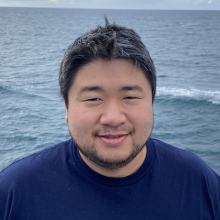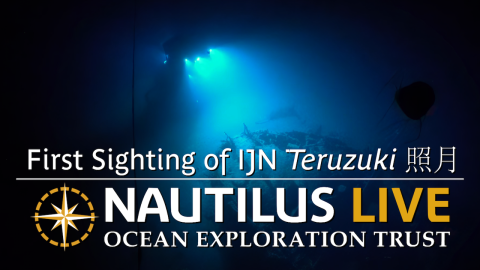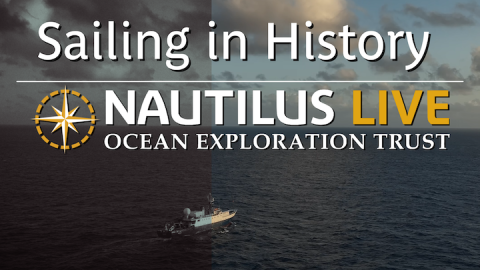
Hiroshi Ishii
Tell us about your work/research. What kinds of things do you do?
I am a maritime archaeologist specializing in World War II sites related to Japan. My research focuses on Japanese aircraft, ships, and submarines used around 80 years ago. Many of these vessels remain in deep-sea beds, and investigating them can reveal how they sank during battles and the technologies used during the war. In the past, studying such underwater sites was challenging and dangerous; however, the latest technologies now enable us to explore these unique time capsules in great detail. As a Japanese individual, I can read original historical documents written in Japanese, which helps me understand the context better.
What sparked your initial interest in your career?
I started studying anthropology as an undergraduate because, as a Japanese student studying in the US, I was fascinated by other cultures and their diversity. After attending a field school in Oregon, I developed a passion for archaeology, which focuses on understanding the human past. While in the US, I heard many rumors about underwater (maritime) archaeologists. Upon returning to Japan, I recognized the potential for this field in my home country, especially given our extensive coastline. During my graduate studies in Australia, I became aware of the need for Japanese archaeologists who specialize in Japanese-related World War II sites.
Who influenced you or encouraged you the most?
Both Japanese and international maritime archaeologists inspired and encouraged me to dive into this field. They proved to me that underwater archaeologists are not mystical creatures in the deep, but dedicated professionals committed to uncovering our past.
What element of your work/study do you think is the most fascinating?
The most fascinating part of my study is discovering unrecorded parts of history. Wreck sites serve as time capsules that capture the moments of battles and sinking.
How did you get involved with the Ocean Exploration Trust?
After being heavily involved in a project in Chuuk Lagoon by the University of Guam, another Japanese maritime archaeologist who saw my work recommended me for the Ocean Exploration Trust. Subsequently, OET reached out to me and invited me to join their team.
What other jobs led you to your current career?
I was fortunate to have the opportunity to join a project in Chuuk Lagoon through the University of Guam, which was my first job as a maritime archaeologist. This experience ultimately led me to my current position as a researcher at Kyoto University. Before starting my current career, I held several jobs in my 20s after dropping out of my first university, where I studied electronic engineering. I worked as a security guard, a computer salesman, and various other roles. Surprisingly, these experiences taught me a great deal about society and myself. Those reflective times are still part of me and have shaped who I am today.
What are your degrees and certifications?
Bachelor of Arts in Anthropology -- University of Wisconsin Milwaukee 2017;
Master of Maritime Archaeology -- Flinders University 2023;
Rescue Diver, Enriched Air Diver, and Emergency Oxygen Provider certified by PADI;
Scientific Diver certified by the American Academy of Underwater Science (AAUS); Professional Scientific Diver certified by the AUS/NZ Scientific Diving Association (ANZSDA);
Japanese National Diver’s License (潜水士);
What are your hobbies?
I enjoy watching movies and playing video games. But we archaeologists consider Indiana Jones and Lara Croft as treasure hunters, not archaeologists.
What advice would you give someone who wants to have a career like yours?
Focus on what excites you, even if you are not good at it right now. If you genuinely enjoy something, you will eventually be good at it. Do not focus on how challenging your career might be. Your fears and excuses can easily hinder your dream and vision. It's okay to have them, but do not feed and give them power. Your honesty and passion are your superpowers against those negativities and struggles. You might feel lonely, so reach out to the people you admire and ask for their advice. Embrace making mistakes along the way, as they are valuable learning opportunities.
Expeditions
Hiroshi participated in the following Ocean Exploration Trust expeditions:


